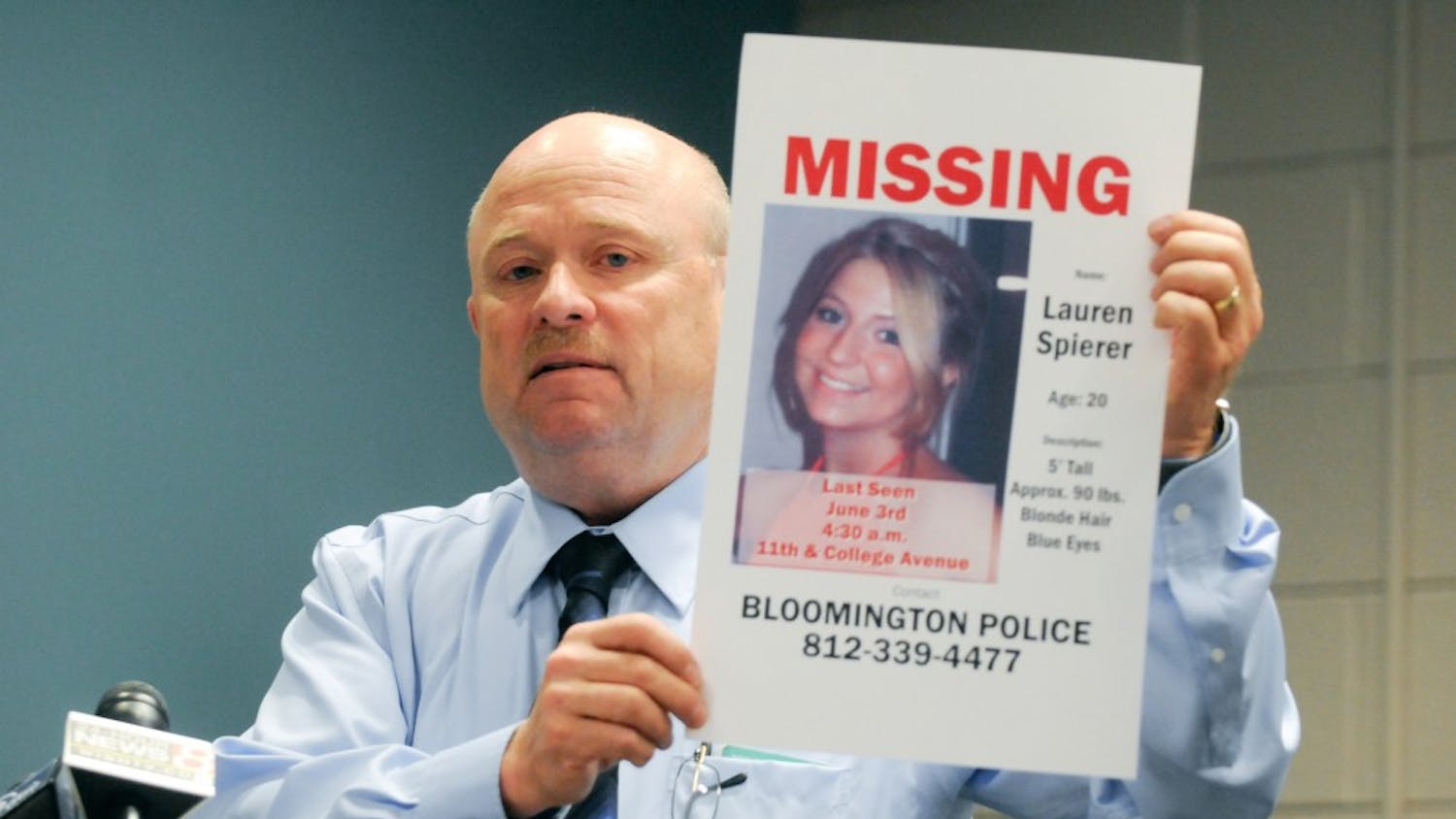Lauren Spierer disappeared more than seven months ago. As search efforts for Spierer dwindle, posters bearing her picture are no longer present on nearly every telephone pole as they once were.
But a 17-year-old from Worthington, Ind., said he believes a law requiring persons of interest in missing persons cases to undergo polygraph tests would help investigators locate Spierer’s whereabouts.
Using change.org, a social change advocacy website, Jalen Faith created a petition several weeks ago calling for “Lauren’s Law,” advocating the use of polygraph tests on key persons of interest in investigations surrounding missing individuals. But the proposal raises constitutional concerns.
“There is an issue when the persons of interest have more protection than the victims themselves,” Faith said.
Few new details have emerged in Spierer’s case because “four of the persons of interest who were last with Lauren that night refuse to come forward with information,” according to the petition, which currently boasts more than 3,500 signatures.
Faith’s petition argues that requiring persons of interest to take the polygraph tests would speed up police investigations.
“We believe that by requiring all persons of interest (POIs) take a police-administered polygraph test will help important details emerge sooner in the investigation, therefore reducing the number of investigators and cutting down on time exerted in solving cases,” the petition reads.
Spierer, then a 20-year-old IU student, disappeared in Bloomington June 3, 2011.
Police have been investigating the case since her disappearance, but the Spierer family hired its own team of investigators to aid in the case.
On the date of Spierer’s disappearance, Faith, who is a junior at Indiana Connections Academy, was visiting Bloomington with a friend. Noticing the quick response to Spierer’s disappearance, Faith said he became interested in the case immediately.
Faith said he did not know Spierer, her family or friends prior to her disappearance, but June 12, he assisted during a search party looking for Spierer.
Since then, Faith said he has been in contact with Charlene Spierer, who Faith said helped him write the petition.
“If we made it so persons of interest had to take a polygraph, we could solve the case right at the beginning,” Faith said. “We would bring a family the closure they need, save time and money.”
The petition is addressed to Indiana Attorney General Greg Zoeller, Gov. Mitch Daniels and the FBI Indianapolis Field Office, among dozens of others. The petition is also addressed to lawmakers in Michigan, Massachusetts and New York.
“The POIs are all from these locations,” Faith said.
While Faith sees polygraph tests as an acceptable tool when investigating cases surrounding missing people, Craig Bradley, Maurer School of Law’s Robert A. Lucas chair of law, disagreed.
If the petition transformed into legislation, Bradley said the law would be “flatly unconstitutional,” violating the Fifth Amendment’s protection against self-incrimination.
Bradley added that such a law would be a “bad idea because polygraph results are unreliable and inadmissible in court.”
But Faith said he is not asking for an exception to the Constitution. Instead, he said the Constitution was written to evolve as society evolves.
“We want POIs to take a polygraph and confirm the information they had already given to police. They’re not saying nothing they hadn’t already said,” Faith said. “If they’re innocent, then they shouldn’t have anything to worry about.”





